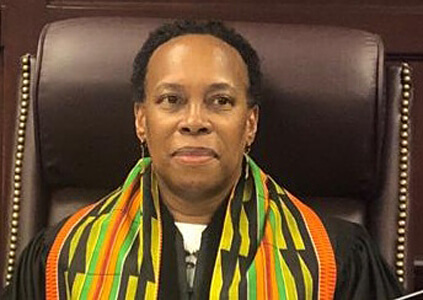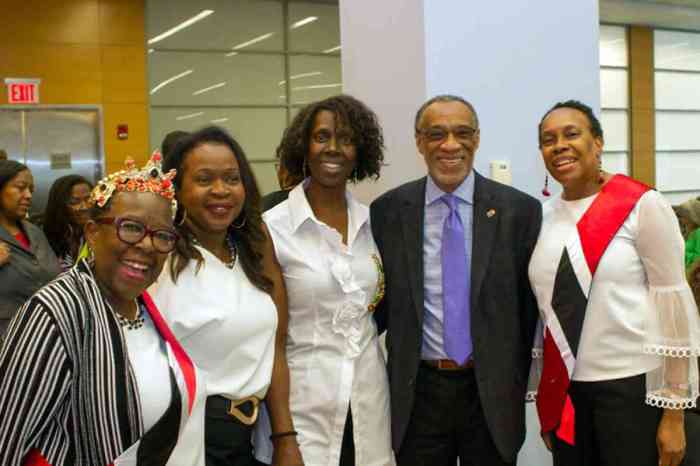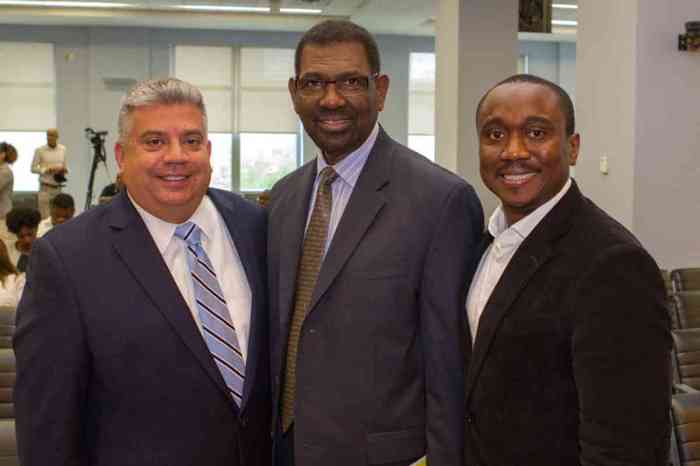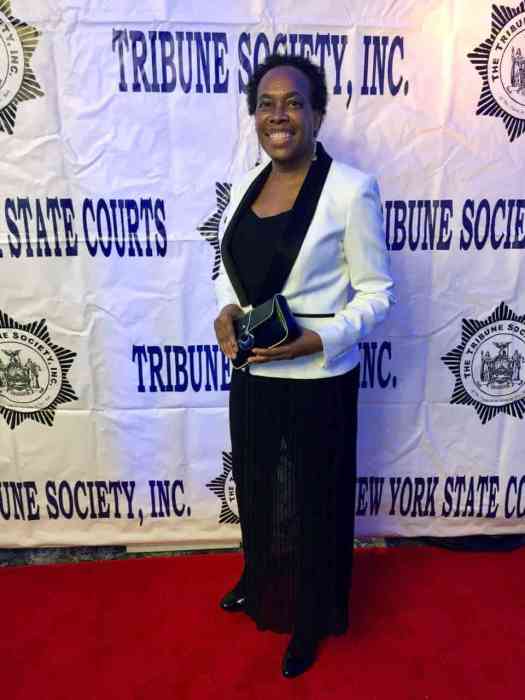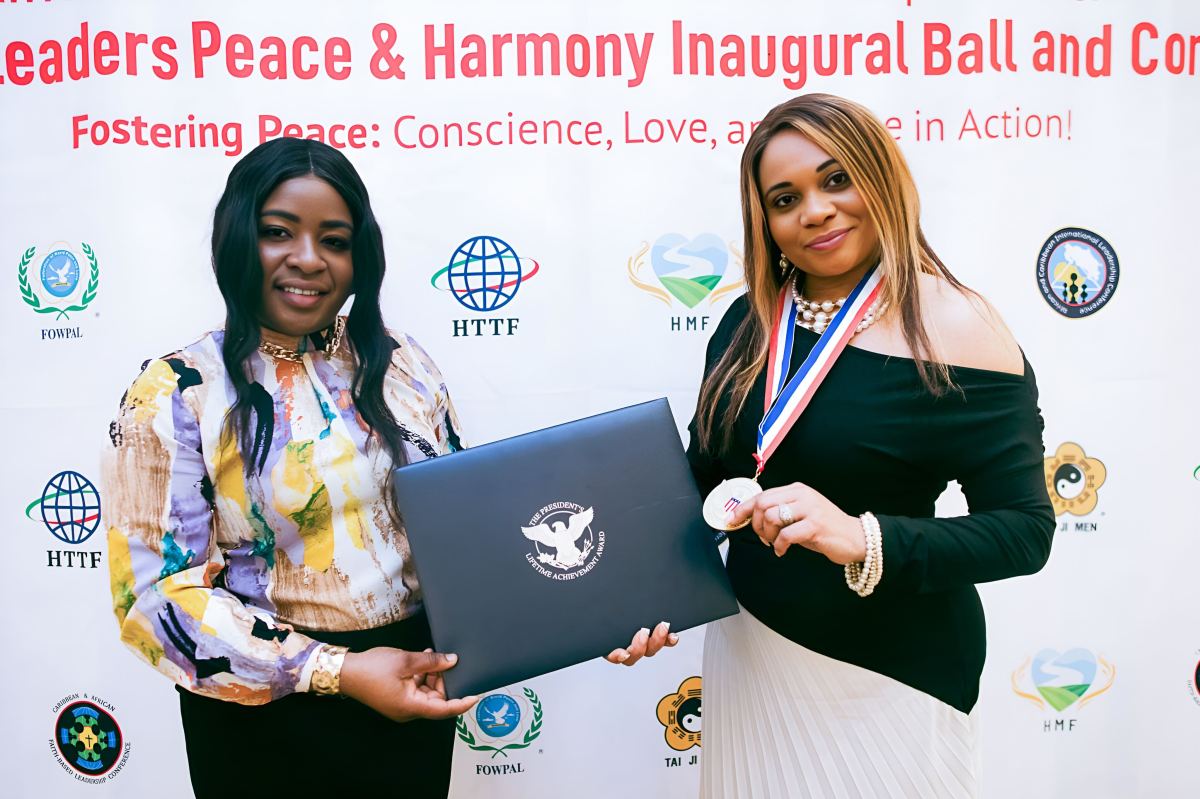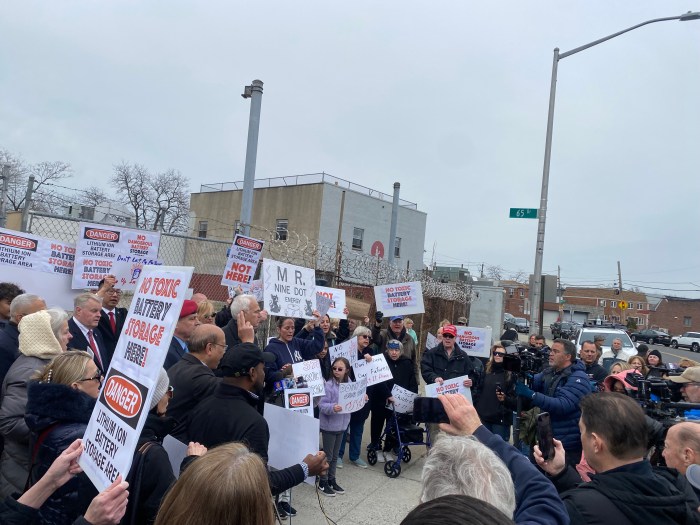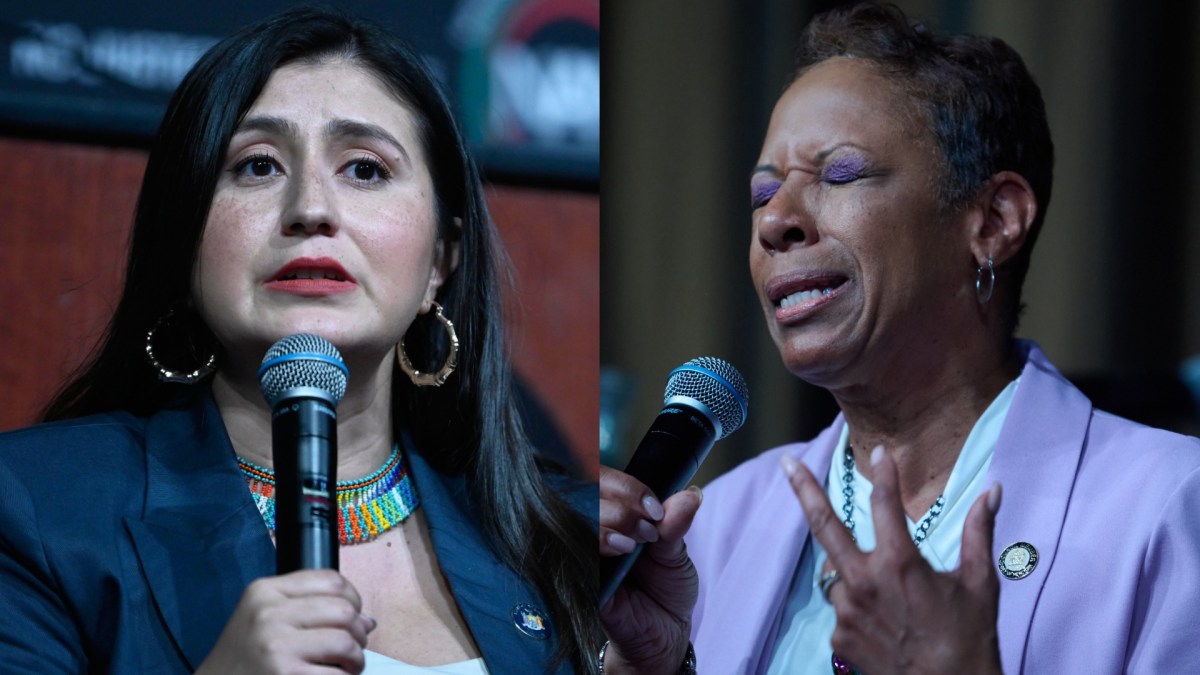Trinidadian-born Justice Wavny Toussaint has said that the COVID-19 pandemic brought “great loss” to Kings County (Brooklyn) Supreme Court’s Civil Branch.
Toussaint — who serves as an associate justice of the Appellate Term, Supreme Court of the State of New York for the 2nd, 11th and 13th Judicial Districts — told Caribbean Life over the weekend that Justice Johnny Lee Baynes, a friend for over 30 years and a fellow Howard University Law School classmate, whose chambers were a mere 30 feet from hers, “lost his battle with the Coronavirus virus in March 2020.
“Shortly, thereafter, in April 2020, Justice Noach Dear lost his battle with the Coronavirus,” added Justice Toussaint, who hears appeals from the New York City Criminal, Civil, Small Claims and Housing Courts in Brooklyn, Queens and Staten Island. “For two years, his chambers were next to mine in Civil Court, and again when he moved to Supreme Court.
“A year or two earlier, he honored me with an invitation to his grandson’s bris,” continued Justice Toussaint, who, simultaneously, serves as an elected Justice of the Supreme Court of the State of New York, Kings County (Civil Branch).
She disclosed that other judges, court officers and court staff became ill because of the virus.
“Some were hospitalized,” Justice Toussaint said. “It was a frightening time because, as of yet, there was no cure.”
She said that January 2020 “began wonderfully.”
On Feb. 5, 2020, with two other colleagues, Justice Toussaint said she sat for the first time as an Associate Justice of the Appellate Term.
She said this was followed by just one more in-person sitting.
“Then the COVID-19 pandemic was upon us,” said Justice Toussaint, disclosing that, in late February, “a memo, with general information about the Coronavirus, was sent to all court personnel.”
In early March, she said an update was provided that was more specifically targeted to the New York State Court system.
By March 17, 2020, except for essential staff, Justice Toussaint said court buildings were closed.
“For most judges and their court attorney staff, the work of drafting decisions simply continued from home,” she said, stating that all Appellate Term sittings were virtual until January 2022.
“In February, we were once again virtual but have resumed in-person arguments in March,” she added. “Unfortunately, we are displaced to a different courthouse for our in-person sittings, as the panel bench in our assigned courtroom at the Kings County Civil Court is too small to allow social distancing for our three judge panels.”
Justice Toussaint said that although access to the court building was limited, “the work of the court needed to continue.”
By April 2020, working remotely and virtually, she said she and her staff resumed conferencing, and settling cases, hearing arguments on motions and issuing decisions.
“So did many other judges,” Justice Toussaint said. “I already had access to court files from my home. Court IT (Information Technology) personnel enhanced that capability.
“To schedule matters, we reached out to parties by email; and, for those who could only be contacted by phone, a Google phone line was used to avoid disclosing our personal numbers,” she added. “For those without computers, tablets or smartphones, we simply had them join conferences by telephone.
“Just as if we were in chambers, there were daily conferences with my Court attorneys to begin and end each workday, albeit by telephone,” Justice Toussaint continued. “I believed these daily calls reduced our isolation, and strengthened both our team spirit and our personal relationships.”
But she said conducting trials, bench or jury, and any type of hearing remained “a challenge.”
“By June 2020, we resumed working from the courthouse, but more regularly working from home, because of the COVID infection rates and my own prior health history,” Justice Toussaint said.
She said in-person trials resumed in October 2020, with three to four jury trials and another one to two bench trials or hearings daily, although motion and conference calendars, as well as many hearings, remained virtual for the public.
“The availability of the protection offered by the COVID vaccines in early 2021 made a major difference, enabling us to increase our trial activity and enabling greater public access,” Justice Toussaint said.
She said judges in Kings County Supreme Court, Civil Branch have been, and continue to, working to dispense justice, with each managing their 1, 000 to 1,500 case inventories.
Justice Toussaint, however, said, because of her Appellate Term duties, her case inventory is capped at 600.
“As we adjust to living with the Coronavirus, I am grateful for two things: First, for the blessing of continued life, and, second, for the privilege of continued service as a New York State judge,” she said.
On her initial election in 2002 to the New York City Civil Court, Kings County, Toussaint became the first Trinidadian-American elected judge in New York State.
During her tenure as a Civil Court Judge, she was assigned to serve in New York City Criminal and Civil Courts, as well as New York State Family Court in Kings County.
Justice Toussaint said her bar association and community service include: Board member of the New York City Supreme Court Justices Association and the Caribbean American Lawyers Association; Nominations Committee Chair of The Judicial Friends, Inc.; life member of the Metropolitan Black Bar Association; member of the National Bar Association and its Judicial Council; the Brooklyn Women’s Bar Association; the Columbian Lawyers; and the Brooklyn Bar Association.
Justice Toussaint is also a decades-long member of the Association of Black Women Attorneys, previously serving as both president and board member.
She also serves on the General Board of the Church of the Nazarene, Inc., and is currently a member of the District Advisory Board for the Metro New York District of the Church of the Nazarene.
At her local church in Brooklyn, Justice Toussaint said she is a board member and serves in its Compassionate Ministry.


